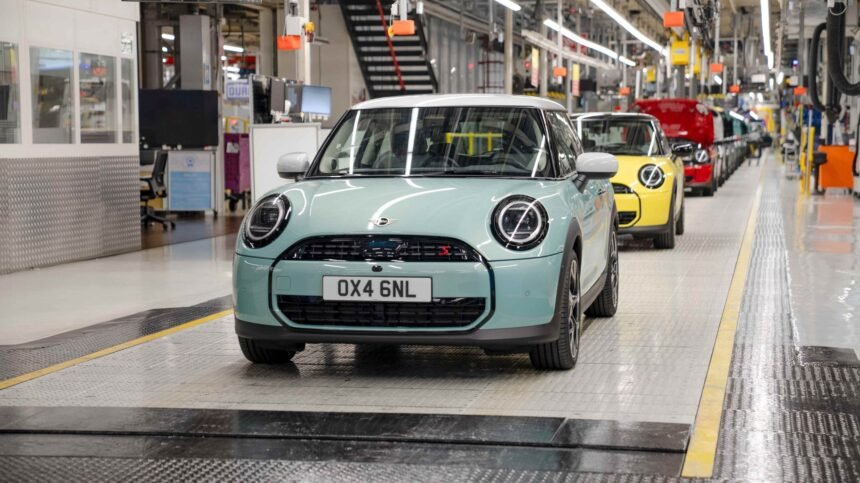Car production in the UK saw a significant decline for the fifth consecutive month in May, with output falling by 32.8% to 49,810 units, according to data released by the Society of Motor Manufacturers and Traders (SMMT). This marks the lowest performance for the month since 1949, excluding the pandemic-impacted year of 2020. Year-to-date figures show a 12.9% decrease compared to 2024, with total output at 348,226 units, the lowest since 1953.
The decrease in car production, which dropped by 31.5% in May, was attributed to ongoing model changeovers, restructuring, and the impact of US tariffs. Commercial vehicle output also saw a sharp decline of 53.6% to 2,087 units, as the closure of one of the UK’s commercial vehicle plants continues to affect comparisons with the previous year.
Exports of cars fell by 27.8% in May, while domestic market output decreased by 42.1%, resulting in exports accounting for 78.5% of total production. Shipments to the EU and US, the UK’s largest markets, decreased by 22.5% and 55.4% respectively, with the US share of exports dropping from 18.2% to 11.3% due to additional tariffs imposed by the US government. However, with a trade agreement set to be implemented by the end of June, the SMMT is optimistic that this constraint will be short-lived.
Exports of vans, buses, coaches, taxis, and trucks also declined by 71.7% in May, with the EU remaining the largest customer, accounting for 94.7% of exports. However, export volumes to the EU fell by 72.1%, leading to a decrease in the export share of overall commercial vehicle production.
Mike Hawes, Chief Executive of SMMT, remains cautiously optimistic about the future of the automotive industry in the UK. He highlighted the importance of trade deals with key markets, such as the US, and government strategies that recognize the sector’s role in driving economic growth. Hawes emphasized the need for rapid implementation of measures to address energy costs and improve competitiveness.
In conclusion, while 2025 has been a challenging year for UK automotive production, there is hope for recovery with the implementation of trade agreements and government support. The industry’s resilience and adaptability will be key in navigating through these tough times and ensuring a sustainable future for the sector.







